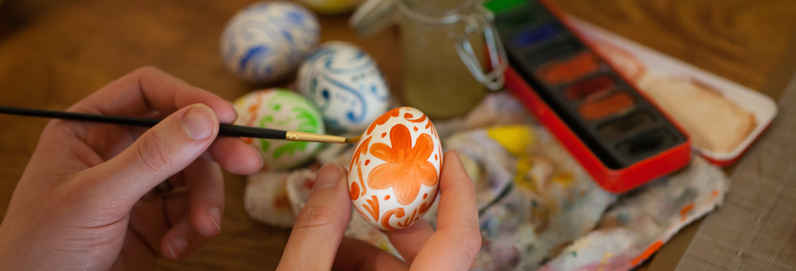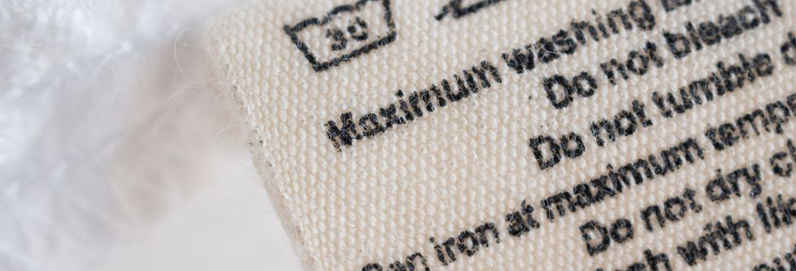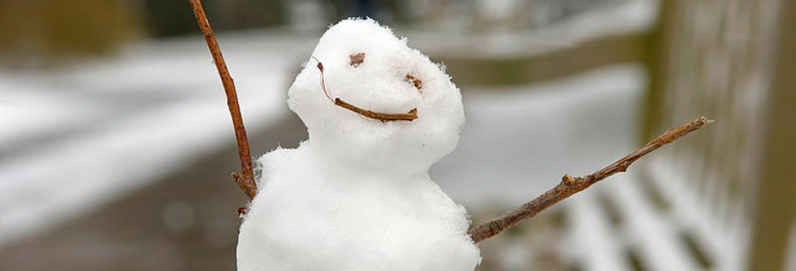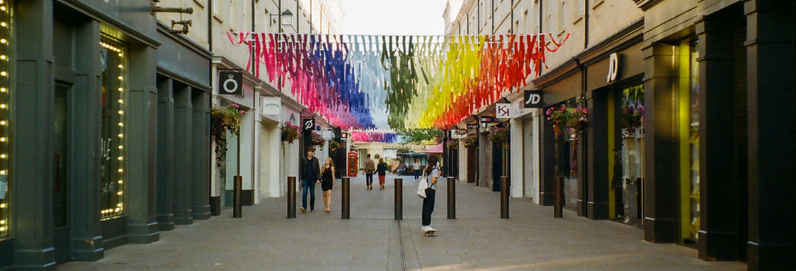Posted 4 months ago
Mon 18 Mar, 2024 12:03 PM
Following Green Week, this week we have our Food Waste Action Week from the 18th to 24th of March. Did you know that food production and consumption are responsible for 30% of global carbon emissions? So, while tossing out that expired yoghurt you find at the back of your fridge shelf might seem small, collectively, our food habits have a huge impact on our planet. Luckily, you are about to discover the university’s initiatives and some useful tips to help us all reduce food waste and save some money too!
Every stakeholder can contribute to reducing food waste: food manufacturers can improve packaging, retailers can forecast demand and implement effective pricing strategies and consumers can buy as they need. The campaign is dedicated to halving food waste by 2030 and this year’s theme is ‘choose what you’ll use’.
Another major stakeholder not mentioned yet is of course educational institutions. At the University of Bath, we have a Sustainable Food Commitment and one of our top headers is reducing food waste.
Here are some initiatives that we are doing on campus:
- Munch Box Scheme: Just bring a box and you get it filled up with surplus food for only £2.50 at the university food outlets! It’s a fantastic deal and be sure to check out the timings for each outlet as they are different.
- Community larder: There is an area with shelves, a fridge and a freezer outside Fresh where you can donate or collect items. It is encouraged to take as you need or will use.
- Too Good To Go: Leftover food from Fresh and The Market can be purchased from the app
Beyond the university, there are organisations and charities that tackle food waste, one of which is FoodCycle which creatively cooks community meals from whatever surplus food is donated from supermarkets. Anyone can get involved as a volunteer!
You can get involved in a competition with prizes called Love Student Leftovers to raise awareness about food waste solutions in the digital world.
Useful tips for saving food:
As students, no one is expecting us to be planning every single meal down to what ingredients we will be using. You can always do the classic ‘just put it in the freezer’ but ultimately, the best way is to avoid buying more than you can eat. Here are a few more tips:
- Store your foods correctly and organise the fridge to maximise space
- Use every part of the ingredient for example, the whole spring onion can be used or broccoli stems can be used to make soup.
Saving green leaves:
Why does Spinach come in such huge bags? On of life’s questions anyway unless your name is Popeye that is allot of green leaves to get though in a few days
This simple method reduces waste and is super quick:
- Wash “as per the manufactures instructions” to remove any soil of debris that may be present
- Add salt and pepper (nutmeg is also great with spinach) and wilt in a microwave or in a pan on a low heat. You will not need to add any liquid at this point as the spinach will release lots of juice
- Remove from the heat, squeeze out juices into a bowl and then chop – rough or fine – up to you
- Portion the spinach into the ice cube tray and pour the liquid over the top. Let’s not waste all that goodness!
- Place in a freezer – making sure to keep the tray flat, so we can avoid spillages
- Once frozen (usually after 1 hour) take then out of the freezer, twist the ice cube tray and turn upside down to realise the green ice cube gems
- Place in zip lock bags. These will take up less space than plastic reusable containers
This ice cube method also works when making flavour butter, like garlic butter, or left over pesto paste. Also works for any other kind of herbs like fresh parsley, basil and coriander.
Give it a go with Rocket too works so well with pesto paste and can be used as a super quick pasta sauce.
Uses for the green ice cube gems are infinite really, but here are a few suggestions: add to pastas sauce, add to soup, defrost in a pan and crack an egg on top, add a few cubes to your portion shake or smoothy, add to finish a spaghetti bolognaise or chili etc.
- Refill stations: This is super useful especially if you want to try a new ingredient without having to buy a huge pack or when the academic year is ending. There are refill stations in the Market, Fresh and a few in the city!
- Sharing is caring: Sometimes you cook too much food and you can’t get yourself to eat the same meal for the third time. When in doubt, always ask your friends. Not only this, you can also share foods you buy in bulk or ones you can not finish on your own.
- Explore new recipes and experiment: There may be times when the ingredients you have seem like they can’t go together but I say it’s a sign to make some fusion cuisine (my creativity peaks right before leaving Bath when all I have are leftovers).
This week’s events:
- Monday 18th March: Too Good To Go Talk- Join us for a free talk on food waste awareness with Flora McMahon who works for Too Good to Go, a leading app for reducing food waste.
- Tuesday 19th March: The UK’s leading vegan campaigning charity Viva! The Vegan Charity is outside of Parade from 11am to 3pm. Pop along to find out more information about food waste and veganism.
Quiz time
(with a lot of tips on food safety that might even save you from food poisoning):
1. In the UK, how much food waste is thrown away annually?
- 5 million tonnes
- 8.5 million tonnes
- 9.5 million tonnes
- 12 million toness
Answer: 9.5 million tonnes
2. In the UK, where does food waste stem from
- 30% Home and 70% businesses/hospitality industry
- 60% Home and 40% businesses/hospitality industry
- 70% Home and 30% businesses/hospitality industry
Answer: 60% Home and 40% businesses/hospitality industry
3. Does the sniff test work for milk and dairy food?
- Yes
- No
Answer: No. It's not safe to use the sniff test for any food with a use-by date. The sniff test won't work as you can't smell the bugs that cause food poisoning.
4. Can you safely eat rice 24 Hrs after cooking?
- Yes
- No
Answer: No. Rice may be eaten cold if it is cooled down quickly. Put the rice in the fridge and consume within 24 hours.
5. Does the egg float test show you if an egg is safe to eat?
- Yes
- No
Answer: No. The egg floats because more air gets inside the older it gets, so it's an indicator of age, not safety.
6. Can you eat brown bananas?
- Yes
- No
Answer: Yes. Fruit that is a bit overripe, such as brown bananas, wrinkly apples and slightly mushy strawberries, can be eaten normally, as long as they don’t contain any mould.
7. Can you still eat food if you remove the mouldy part?
- Yes
- No
Answer: No. Food that is obviously rotten or containing mould should not be eaten.
8. Can you eat potatoes when they go green and start to sprout?
- Yes
- No
Answer: Yes. If potatoes have sprouted, simply remove the sprouts before use. Remember to cut off any green or rotten bits before using.
9. Can you store potatoes in the fridge?
- Yes
- No
Answer: Yes, if you wish to help avoid food waste, you can choose to store potatoes either in the fridge or in a cool, dark, dry place.
10. Is it safe to leave food in opened cans?
- Yes
- No
Answer: No. You should not store food in an opened tin can. When a can has been opened and the food is exposed to the air, the tin from the can could transfer more quickly to the food inside.










